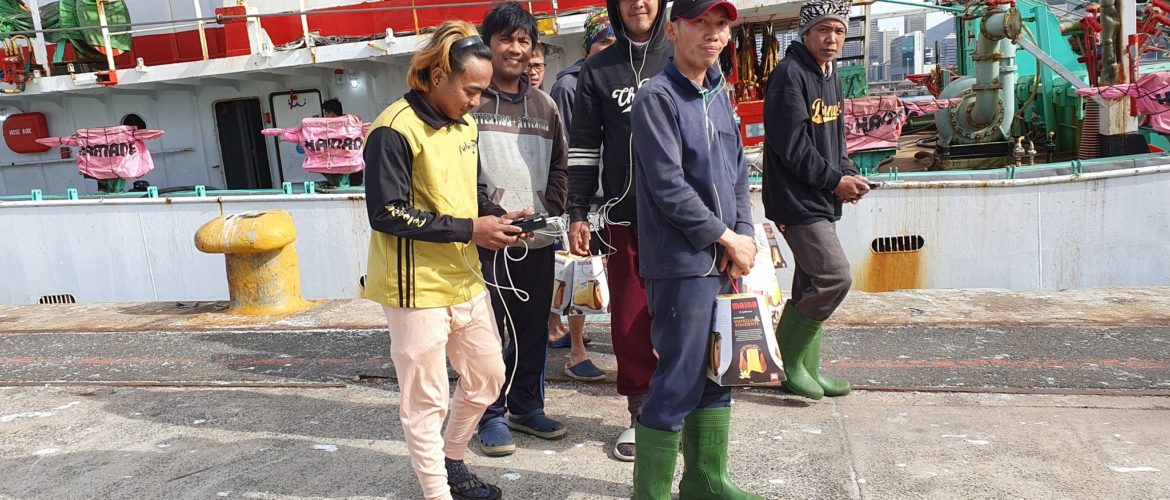Through Fr Rico Talisic, Stella Maris South Africa believes that migrant fishers on board Taiwanese fishing vessels should receive the right wages, and get better treatment, working, and living conditions. He assumed that their basic human rights were respected. In fact, he had met several times with representatives of the Taiwanese Consulate, vessel owners, vessel managers, and local agents to discuss migrant fishing issues. Despite this, he was shocked to hear some grievances that undermined fishers’ rights. He was afraid that if he dug deeper, he would find traces of forced labour through malpractices on board.
There’s malpractice in hiring migrant fishers but they do not do fishermen’s job on board. A typical example of this is the work of a 2nd engineer. While on board the Chief Engineer is the person responsible for the vessel’s engine, however, in day-to-day operation it is the 2nd engineer or pseudo-engineer that does the job. Typically, the Chief
Engineer commands and orders the 2nd engineer what to do. In the engine room, these fishers are not engineers but have acquired their skills through experience. The issue is that their employment contracts stipulate that their job description is fisherman, hence they are paid the minimum salary of a fisherman. Some of them were told by the vessel owner or captain that they would receive additional salary without signing any document. As soon as their employment contract ends, they are at the mercy of the vessel owner or captain who determines whether they receive additional salary or not.
Concerning food supplies, fishing vessels order sufficient food supplies before sailing. Fr. Rico was wondering why migrant fishers keep buying cans of coffee and kilos of sugar. In practice, at high sea, on some fishing vessels, coffee, tea, sugar, milk, or chocolates are not freely given to fishers. They cannot make their coffee daily. Some of the times they receive it when they have a good catch, when someone has a birthday, or when the captain is in a good mood. Some vessels provide them but deduct them later from their salary. The fishers need to drink coffee especially during the night shift and in cold weather. The solution is, they buy their own coffee, sugar, tea or powdered milk, or milo. Other issues related to food supplies are insufficient food for meal times. Several fishers recount their stories of hunger on board after eating little food on the table or porridge on working days. They lamented having not enough strength to endure the long hours of fishing. On other occasions, they eat spoiled vegetables and fruits, expired noodles, and other foods. Fishers told Fr. Rico that they have noodles stocks that expired in 2014. Their solution is to buy their own food supplies like biscuits, noodles, chips, etc. so they can consume them inside their cabins.
Lastly, the most painful part is when a migrant fisher dies. Stella Maris South Africa received phone calls from the bereaved family of a dead fisher. They said that the local agent in Cape Town sent the body of the deceased fisherman to Manila airport. Following that, the agency or family will obtain the body from the airport and secure all the permits to fly the coffin to the nearest airport to the house. In such cases, the agency does not cooperate with the bereaved family or is slow to act. In the end, sorting out the matter falls into the hands of the deceased’s family that has to travel from the province to Manila. This process is easier for families that have relatives in Manila or who have been to Manila. On the other hand, families that don’t have relatives in Manila find themselves lost in the city, lost in the process, and know nobody to turn to for help. Stella Maris South Africa regrets the continuing malpractices on board Taiwanese flagged fishing vessels. We call on the Taiwanese Government to step in to correct such malpractices that have affected hundreds of migrant fishers.


